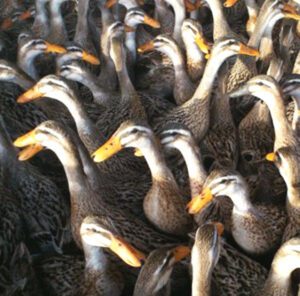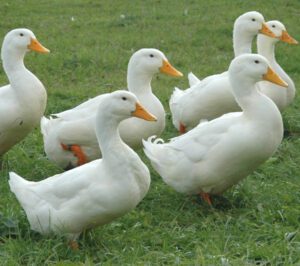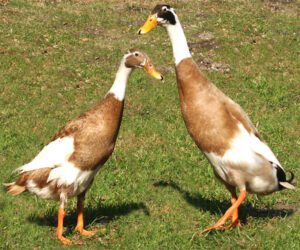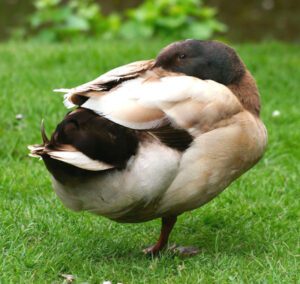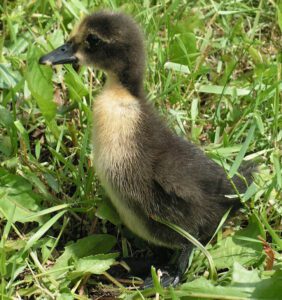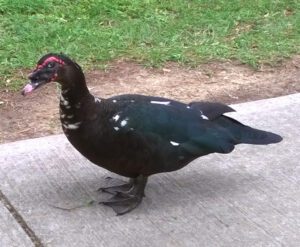The Pomeranian duck is a breed of domestic duck originating in Germany. As the name suggests, the breed was developed from Pomerania, a baltic sea coast region in Germany.
Like some other northern European duck breeds, such as the Shetland duck and Swedish Blue duck, the Pomeranian duck also share the same ancestors. It is a landrace and found on the home farms in the pomerania district in the north-eastern part of Europe, on the border of Germany and Sweden.
The Pomeranian duck is also known by some other names such as Pommern and Pommernente in German. The Swedish Blue, Shetland and Pomeranian duck all were originated form the coastal areas of Sweden, Germany and Holland.
The color of the Pomeranian duck is much of the attraction today. But the breed was not only developed for their beauty but also for their uses as a good dual purpose duck. Today they are mainly kept as an utility bird and used for both meat and eggs production.
Pomeranian Duck Characteristics
Pomeranian duck is classed as a medium sized bird. It has a fairly long body. But their body is broad and deep and carries itself more horizontally to the ground. The breed is categorized as frivolous duck breed and they come in two special colors, such as Black and Blue.
The Black variety appears with the white colored bib and has a green shine over it’s black colored plumage. And the Blue variety is chiefly a striking bird with it’s flat light blue color plumage and white color big patch on upper breast. They have dark beaks, preferably black. Their feet are dark and the eyes are dark brown.
Like most other duck breeds, the Pomeranian drakes are heavier than the ducks. Average body weight of these ducks is about 2.5 kg and the drakes weight about 3 kg. Photo from Wikipedia.
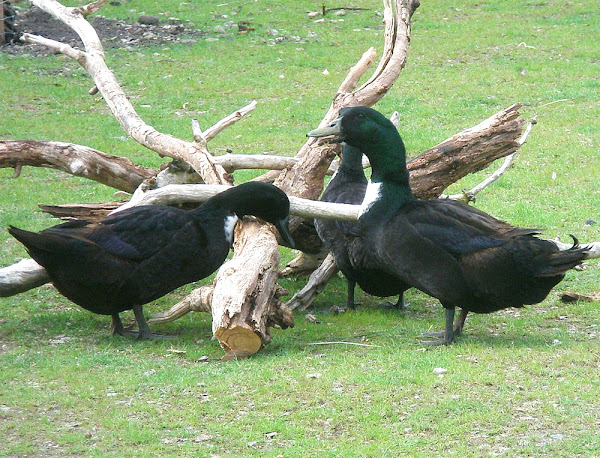
Uses
Pomeranian duck is a dual purpose duck. They are raised for both meat and eggs production. Sometimes they are also raised for enhancing the beauty of the backyard.
Special Notes
The Pomeranian ducks are fairy social and chatty. Some ducks are passive and some are very aggressive. These ducks make superior watch birds, as they are inclined to welcome visitors loudly. They are excellent foragers.
The ducks are not among the best egg laying duck breeds. They lay about 70-100 eggs per year. And the color of the eggs is white or greenish. The breed is pretty rare today. However review full breed profile of this duck breed in the following chart.
| Breed Name | Pomeranian |
| Other Name | Pommern and Pommernente in German |
| Breed Purpose | Dual Purpose |
| Special Notes | Excellent Foragers |
| Breed Class | Medium |
| Broodiness | Average |
| Drake | 3kg |
| Duck | 2.5 kg |
| Climate Tolerance | All Climates |
| Egg Color | White/Greenish |
| Egg Size | Large |
| Egg Weight | 80-90 grams |
| Egg Productivity | Low |
| Flying Ability | Poor |
| Rarity | Rare |
| Varieties | Black & Blue |
| Country of Origin | Germany |

